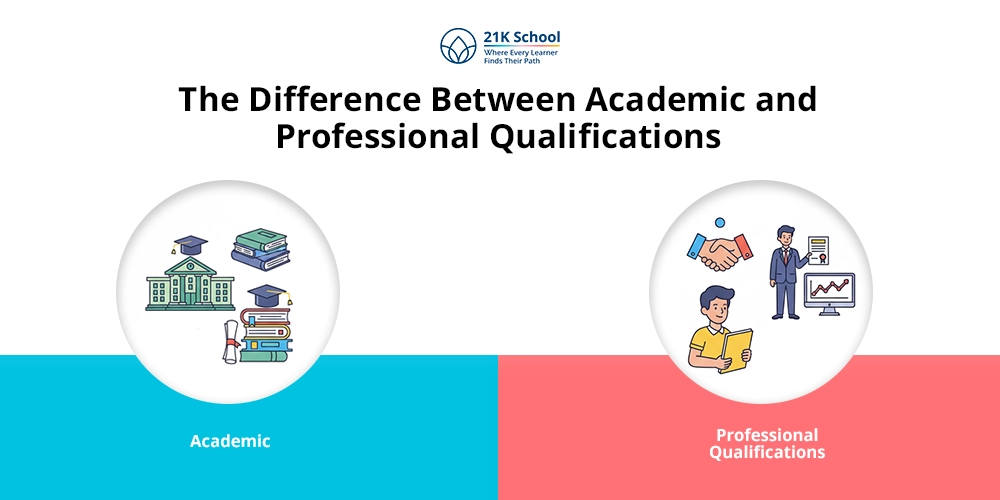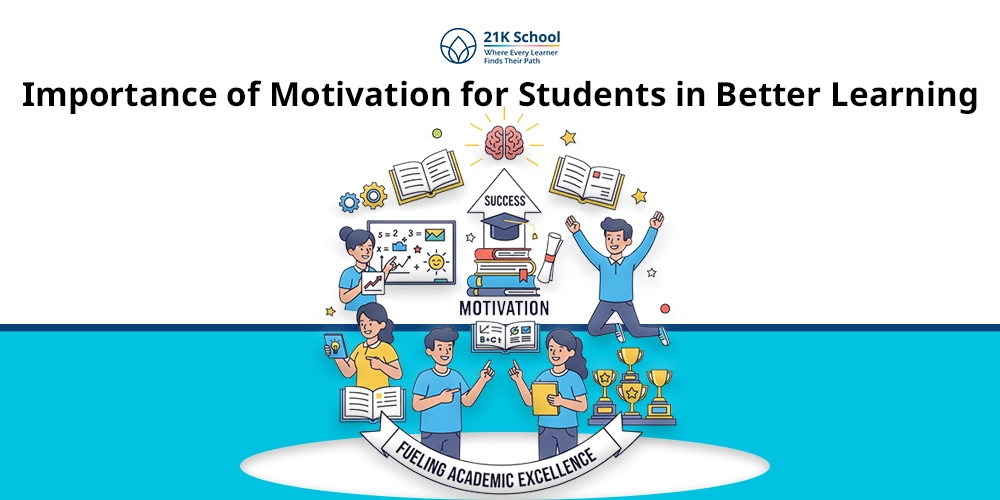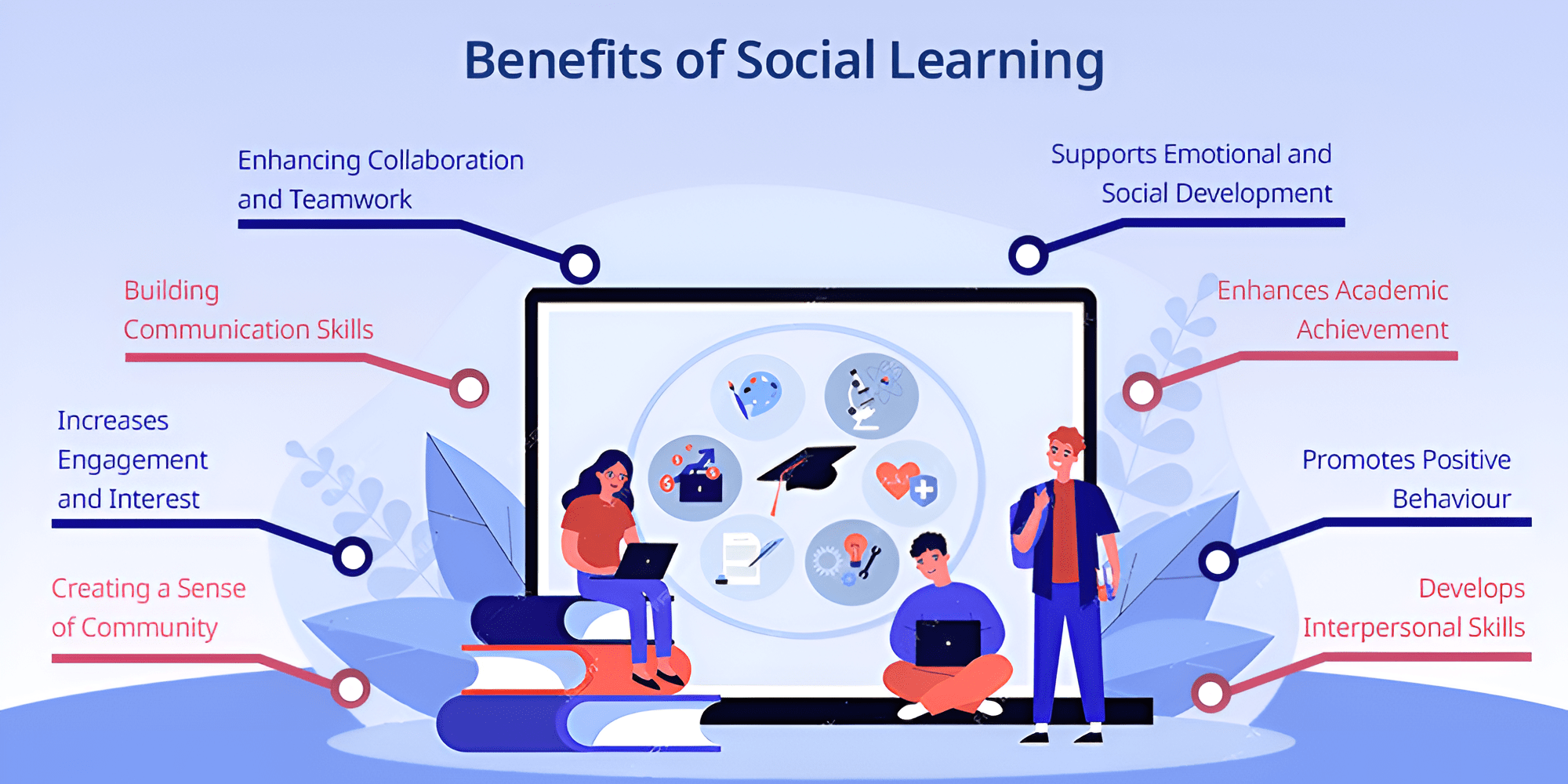
Social learning has gained prominence in modern education in the past few decades as it blends collaboration interaction with shared experience to create a more effective learning environment than the traditional classroom methods.
Unlike traditional methods which often only focus on individual performance, social learning focuses on group dynamics and community engagement creating an environment that contributes to a student’s holistic development — ensuring real education with real time involvement.
Table of Contents
What is Social Learning?
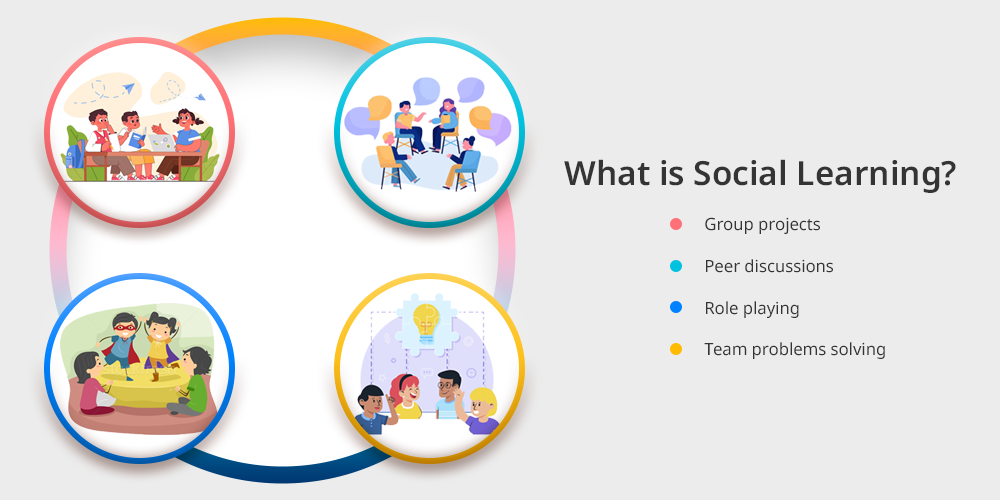
Social learning is a process where individuals acquire knowledge and skills through observation, interaction and collaboration.
It is ideally rooted in the learning which enhances a student’s communication skills and exposes them to a diverse perspective and opinions.
Social learning helps students to grow in a group setting enabling them to learn from instructors and also from their fellow classmates.
Some of the activities involved in social learning are :
- Group projects
- Peer discussions
- Role playing
- Team problems solving
Thus, unlike traditional education which delivers much knowledge, the skills built in students equip them with practical competencies necessary to perform and thrive within the context of contemporary society. Which is explained in the following blog : The Importance Of Skill Development in School Education
Why Social Learning is Important in Modern Education?
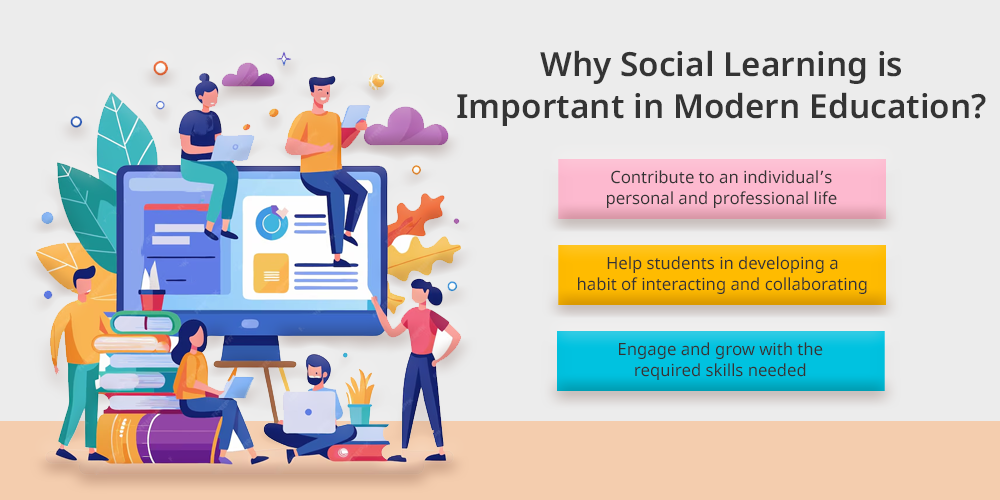
The modern landscape of education demands creativity and academic proficiency along with life skills that contribute to an individual’s personal and professional life.
These life skills like teamwork, communication and emotional intelligence help students in developing a habit of interacting and collaborating with others to share perspective and develop a deeper understanding of concepts.
Social learning can be well integrated into virtual learning environments to promote holistic development.
Social learning is required to create an environment where students can engage and grow with the required skills needed in the 21st century workforce. It helps students in understanding the importance of collaboration and adaptability in their life.
8 Benefits of Social Learning
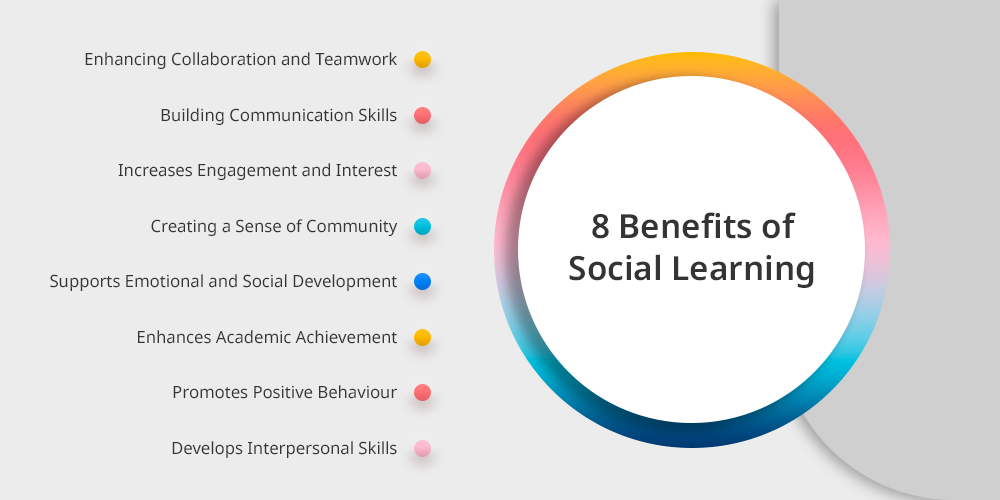
The benefits of social learning covers enhancing collaboration and teamwork, building communication skills, increasing engagement, interest, creating a sense of community and others like:
1. Enhancing Collaboration and Teamwork
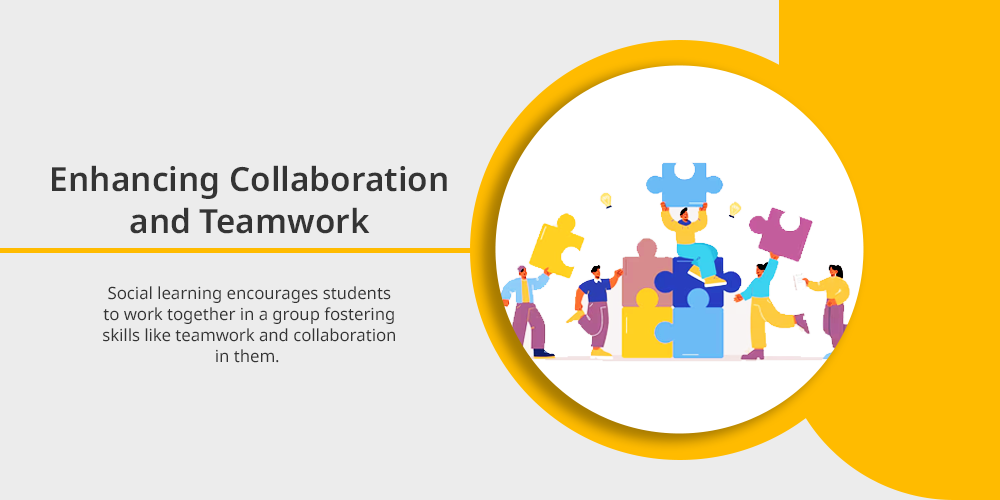
Social learning encourages students to work together in a group fostering skills like teamwork and collaboration in them.
By engaging in group activities they learn to respect different opinions and accept diverse perspectives with time.
Under this learning methodology they learn to delegate tasks and achieve common goals with collaborative effort which is a valuable skill in both academic and professional setup for individuals.
2. Building Communication Skills

For any student to develop into a well rounded individual they require effective communication skills that will help them in group interaction and contribute to their professional life.
Communication is one of the building blocks of social learning which is developed through discussions, presentations, group interactions and community projects.
With the help of these students develop their ability to articulate ideas clearly and actively listen to the feedback and the ongoing discussion, helping students in adapting to different communication styles and respecting audiences from different backgrounds.
3. Increases Engagement and Interest

Interactive and dynamic environment naturally develops a student’s interest in the activity and when a student is involved in a learning journey which is supported by activities like debates, role playing and collaborative projects it motivates them to participate actively.
4. Creating a Sense of Community
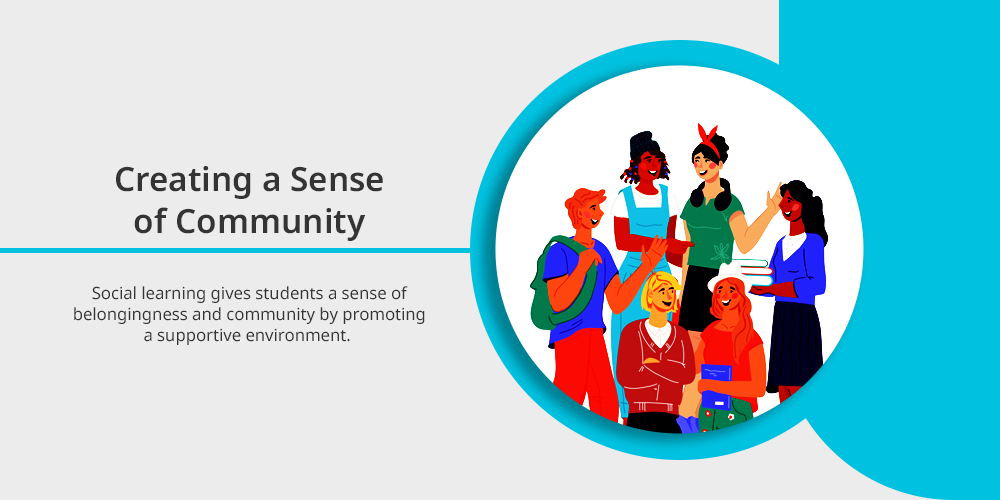
Social learning gives students a sense of belongingness and community by promoting a supportive environment.
By collaborating and sharing experience with each other students build meaningful networks that enhance their educational journey and promote personal growth in them.
5. Supports Emotional and Social Development
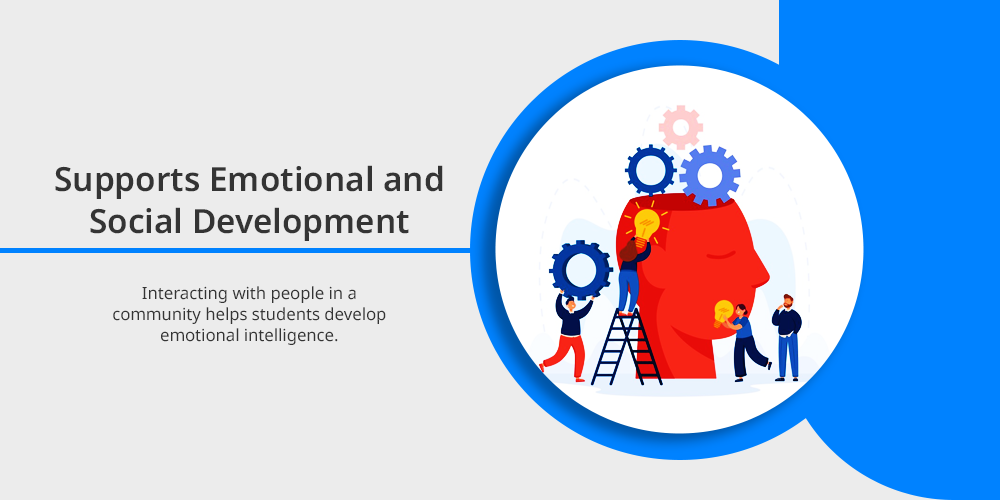
Interacting with people in a community helps students develop emotional intelligence as with regular interaction they develop a sense of empathy towards everyone and regular communication enhances their conflict resolution skills.
Social learning encourages students to navigate their journey through the social dynamics constructively, ensuring that they learn all the skills required and creating networks for real world scenarios.
6. Enhances Academic Achievement
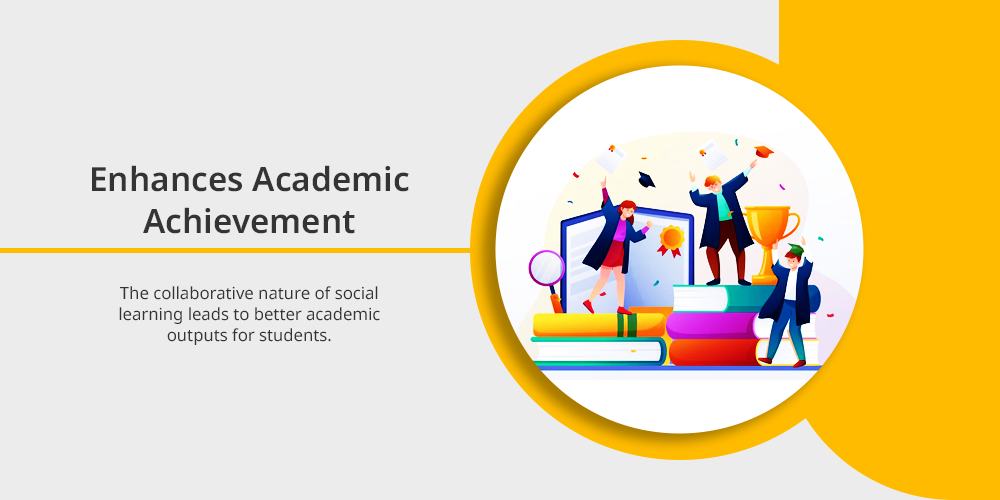
The collaborative nature of social learning leads to better academic outputs for students where they learn from diverse viewpoints and collectively solve problems enhancing their understanding and performance with peer support.
7. Promotes Positive Behaviour
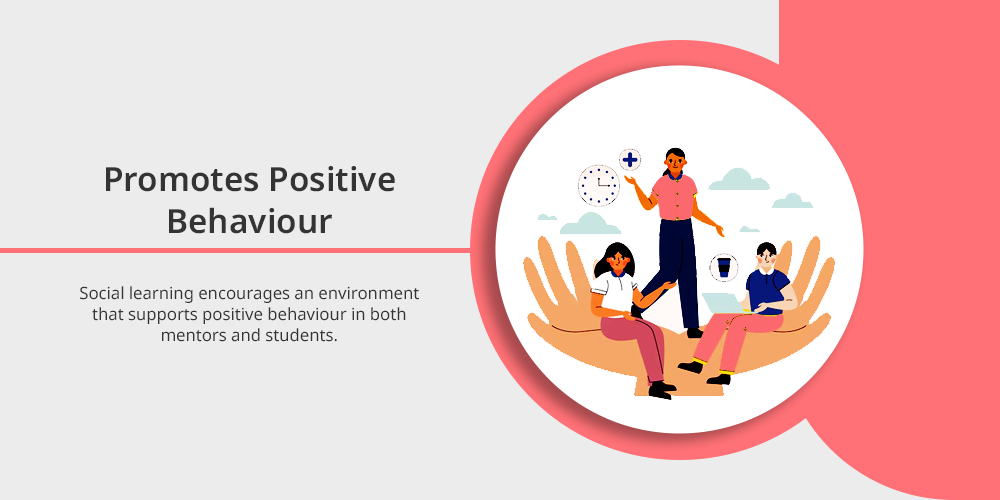
Social learning encourages an environment that supports positive behaviour in both mentors and students.
It is a model that supports respect, demonstrates leadership and displays perseverance for students to learn and adopt the traits through interaction and observation.
8. Develops Interpersonal Skills
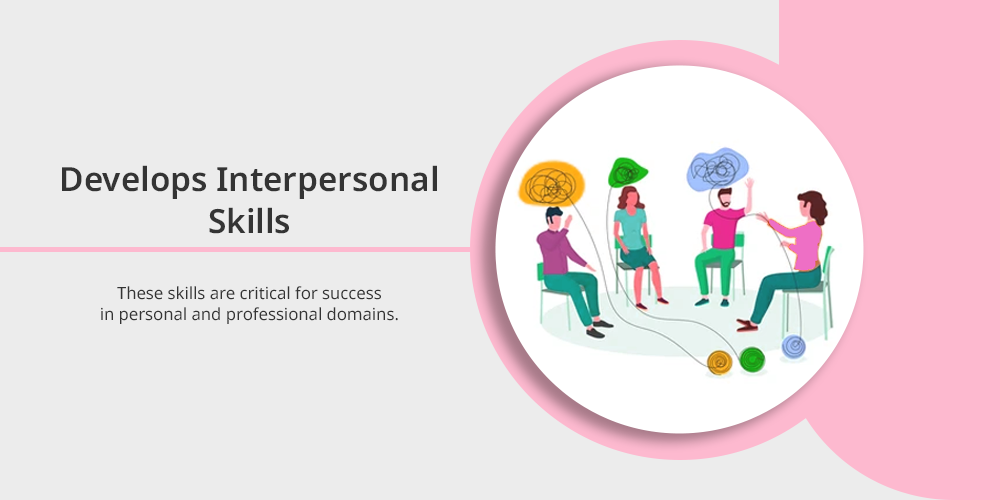
Through regular interaction and collaboration, students learn more about their interpersonal skills, such as building relationships, resolving conflicts, and working effectively in diverse groups.
These skills are critical for success in personal and professional domains.
Conclusion
Social learning consents traditional education in many ways especially when it comes to collaboration and community development that integrate every element from both the dimensions into the learning process.
It prepares students for academic success and inculcates skills that help them in communicating in society well.
social learning and social awareness is an integral part of social emotional learning. is not just about educating students academically but also preparing them as complete individuals by focusing on different skill development.
It also equips students with skills that are indispensable for personal and professional growth in the modern world and deal with all the challenges around.
By embracing social learning educators can create an enriching environment that fosters meaningful connections and holistic development in students ensuring that nobody feels left out.


